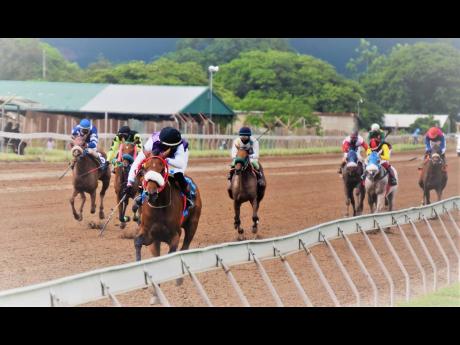Jimmie says | Punters are vital stakeholders too
READING the Thoroughbred Daily News’ comments of trainers in the United States reacting to Jorge Navarro’s guilty plea to one count of distribution of adulterated and misbranded drugs with the intent to defraud and mislead, there was a glaring disregard amid the scorn being poured on the doping scandal, which involved another top Monmouth Park trainer, Jason Servis, being among 29 persons indicted in possibly the biggest drug conspiracies to have ever hit horse racing globally.
Neither Mark Casseo, Bill Mott, Shug McGaughey, Graham Motion, Ken McPeek nor Christophe Clement mentioned, even briefly, how the multimillion-dollar scheme to defraud bettors would have affected punters. Instead, it was all about how many times Servis’ or Navarro’s horses might have denied them purse monies.
It is this general disregard for punters’ hard-earned cash why, locally, horses can turn around their form at the drop of a hat with no questions asked by the regulatory authority, the Jamaica Racing Commission (JRC), whose job it is to protect punters’ money.
It is so comical that what was once clandestine, race-training horses, has become par for the course, none more so than among the bigger barns, which have to ensure the spoils are distributed among their well-heeled masters before the next yearling sale comes around.
Though having claimed to have reinstated its ‘in-and-out-running’ committee, the JRC’s own stewards accept as the ‘norm’ (because it happens in North America) the racing office calling trainers to ‘fill’ races with horses, which they had absolutely no intention to have nominated, effectively rendering them as underprepared ‘non-triers’ on race- days.
Race-training of horses have no place in events on which punters are staking bets, which is what the practice of ‘filling’ races amount to – a welcome invitation for non-triers to distort their form – much to the ignorance of the betting public, which does not have the benefit of a warning system to ignore horses entered under those circumstances.
Whereas the promoting company’s plight to assemble competitive line-ups in a dwindling horse population is obvious, leading to the practice of filling races, its problem is partially self-made and can be easily solved by data-driven analytics.
Forget the foundation fact that there are far too few horses to be divided into 20-odd categories for which at least three ranges of distances must be satisfied – sprints, middle and long-distance. In the top tiers, instead of having races at similar trips in a one-month span, giving ample opportunity for hanky-panky, why aren’t the distances radically varied and extended to a two-month cycle?
Staging a one-mile race on July 31, followed by a seven-and-a-half event for the same set of horses within two weeks, numbering no more than probably a dozen genuine runners overall, is an open invitation to race-training and corruption.
Discovery of syringes
On another note, the public has been waiting with bated breath the JRC’s follow-up on what it had declared as the discovery of syringes in the paddock area during a recent race-day raid, as well as electrical devices (batteries) found at unnamed stable or stables.
First, if it is that electrical devices were actually found in stables or at a particular stable, why hasn’t the public been so informed by the JRC as to exactly which barn, where within, and what is the progress of its investigation, as is done internationally?
Second, if it is that syringes were found in the paddock area, where runners are held before entering the saddling barn, suggesting that horses were administered substances illegally, presumably prohibited, shouldn’t a bunch of adverse samples have been picked up by laboratory tests, as long as the respective urine samples were properly collected by the JRC-controlled testing barn?
Ainsley ‘Jimmie’ Walters has been covering horse racing for more than 25 years for the Gleaner Company (Media) Limited and is the editorial and production coordinator for the Track And Pools race form.

